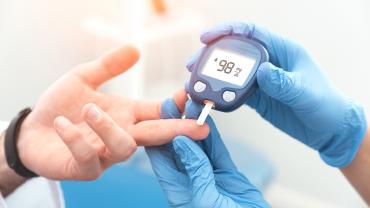
In recent years, several ketone drinks became available, and they are growing in popularity. These drinks may provide a shortcut to some of the benefits of ketosis.
Our liver produces ketones in response to a ketogenic diet. Nutritional ketosis may improve blood glucose control among other aspects of health.
Unfortunately, the very-low-carbohydrate, high-fat ketogenic approach to eating can be challenging to sustain. Ingesting exogenous ketones may be an alternative way to promote glycemic control.
What Are Ketone Drinks?
Ketone drinks are typically manufactured in a powdered form to be mixed with water. The drinks are generally formulated with beta-hydroxybutyrate (β-HB). This is the major circulatory ketone body and one of three ketones our body produces. A ketone monoester is a ketone body bound to an alcohol molecule (1,3-butanediol).
Ketone drinks may supply β-HB as either ketone esters or ketone salts, and both forms can increase blood ketone levels. A ketone salt is the combination of a ketone body with a mineral ion, such as magnesium, sodium, or potassium. The ketone salt formula is generally more popular because it tastes better. Ketone ester drinks are less widely available, but they are more commonly tested in research.
Glycemic Impact of Ketone Drinks in a Glucose Tolerance Test
There is a special clinical interest regarding the impact of ketone drinks on post-meal blood glucose control. Good postprandial glycemic control is important for reducing the risk of cardiovascular disease, even in people without diabetes.
Scientists at the University of British Columbia Okanagan have conducted a series of studies on the glycemic impact of ketone drinks. In a randomized, double-blind crossover study, the scientists gave 15 obese adults a β-HB ketone monoester drink or a taste-matched placebo drink after an overnight fast. Thirty minutes later, the participants underwent a standard 2-hour, 75-g oral glucose tolerance test. The ketone drink group had an 11% lower glycemic response compared to the placebo group.
These scientists had previously tested the ketone monoester drink with the same protocol in 20 young, healthy lean adults. In that study, the ketone drink group had a 17% lower glycemic response to the oral glucose tolerance test.
Glycemic Impact of Ketone Drinks in a “Real-Life” Meal Test
Considering these studies, important questions arise. What happens when the ketone drink is consumed closer to mealtime? What is the impact of the ketone drink when using a test meal containing mixed macronutrients rather than just glucose?
Recently, scientists at the University of British Columbia Okanagan conducted another study in which they gave 19 healthy, young adults a ketone monoester drink or taste-matched placebo drink 15 minutes before a mixed meal. The meal consisted of two granola bars and a meal replacement drink, which provided 555 calories, 17 g of fat, 87 g of carbohydrate, and 16 g of protein. Those who consumed the ketone drink prior to the mixed meal had a 9.5% lower glycemic response.
These findings are very encouraging. Notably, though, the glycemic benefits of ketone drinks remain to be tested in people with type 2 diabetes.
By Marsha McCulloch, MS, RDN, LN